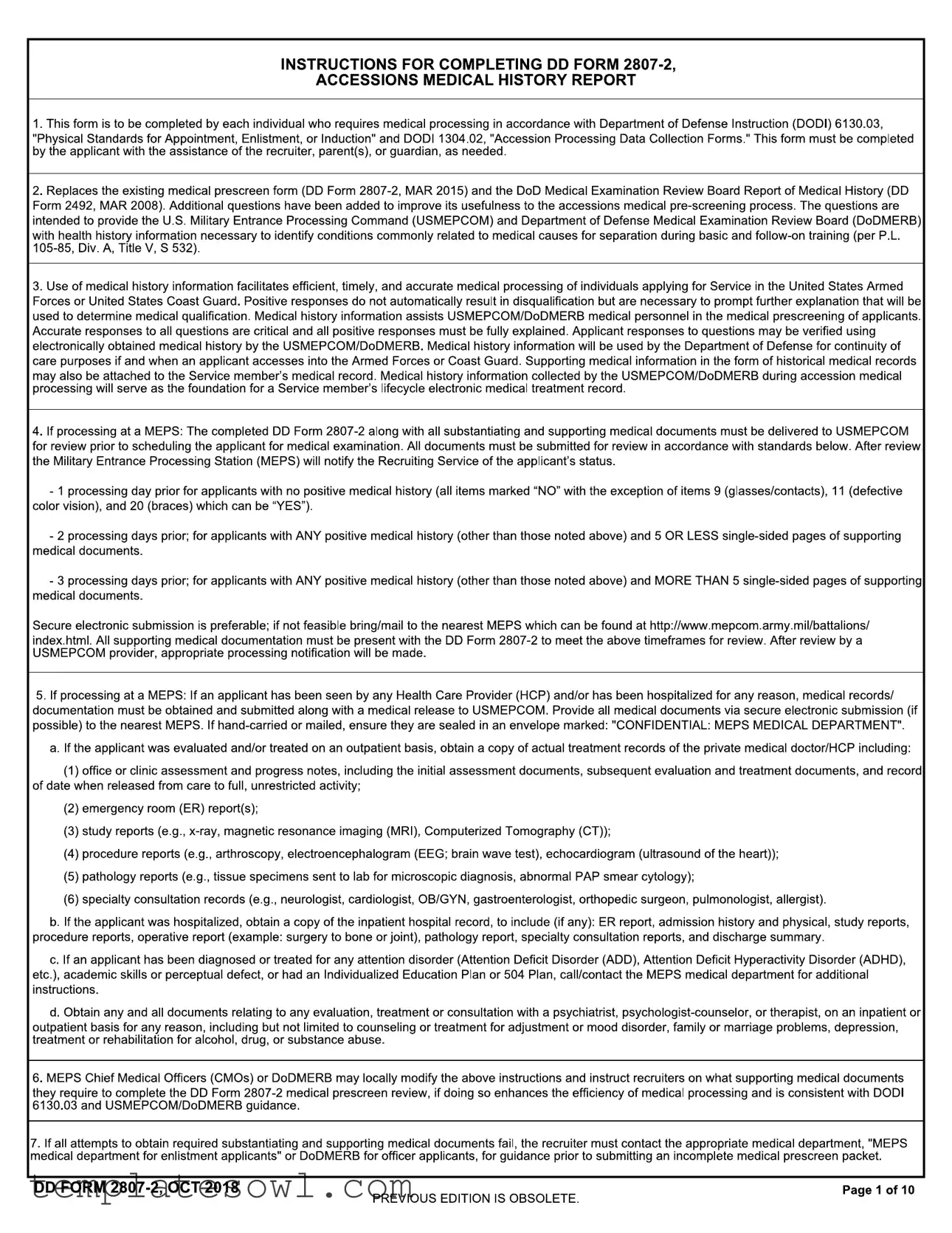Fill Out Your Dd 365 4 Form
The DD Form 2807-2, known as the Accessions Medical History Report, plays a vital role in the medical processing of individuals seeking to join the U.S. Armed Forces or the Coast Guard. Designed to ensure that applicants meet the health standards set by the Department of Defense, this form replaces previous medical prescreening documents. It is completed by each individual who requires medical processing, often with guidance from a recruiter, parent, or guardian. This comprehensive form captures a wide range of health history information to identify any conditions that may lead to medical disqualification during training. The questions posed are crucial not just for assessing immediate medical fitness but also for establishing a foundation for the service member's future medical treatment records. Importantly, completing this form accurately is essential; even positive medical history responses don't necessarily disqualify an applicant but serve as prompts for further clarification and examination. Additionally, the process requires the submission of supporting medical documents, which must be adhered to with careful precision to avoid delays in processing. Understanding the intricacies of the DD Form 2807-2 is fundamental for prospective service members and their families, helping them navigate the medical evaluation process efficiently and effectively.
Dd 365 4 Example

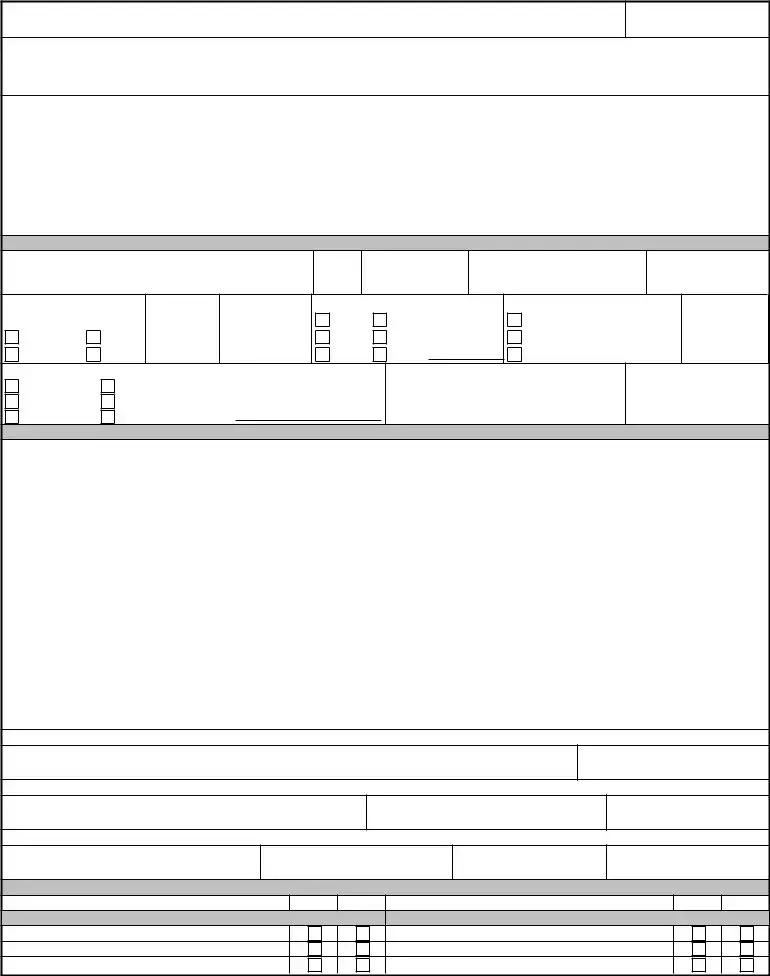
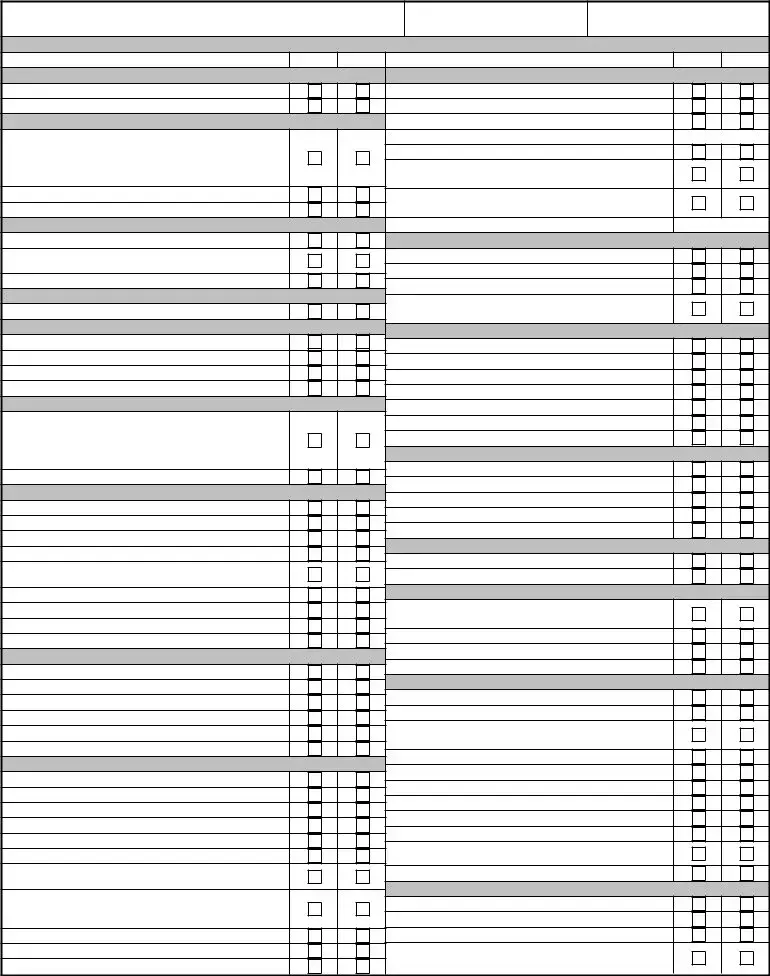
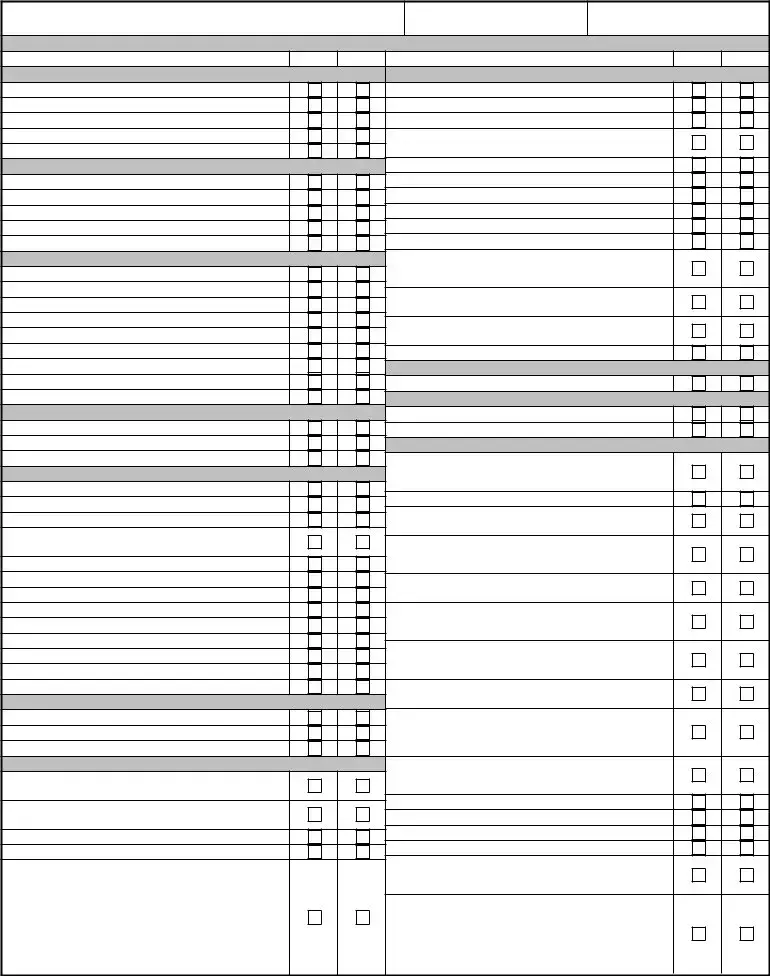


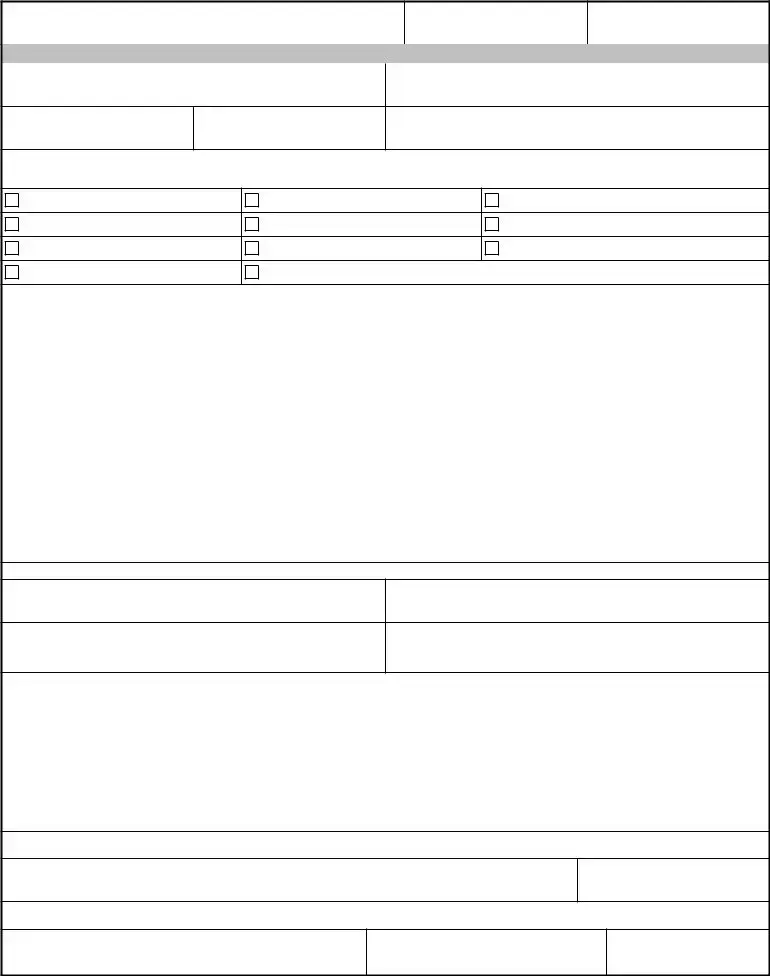

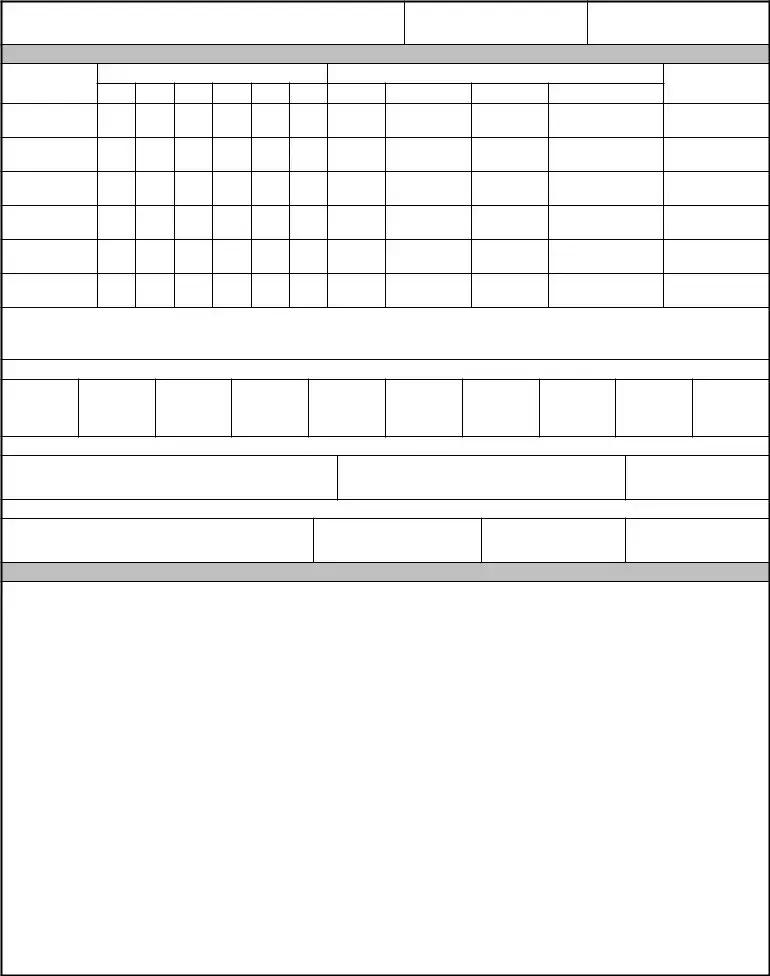

Form Characteristics
| Fact Name | Description |
|---|---|
| Purpose | The DD 2807-2 form is designed to collect medical history information from individuals seeking enlistment in the U.S. Armed Forces. It is integral for ensuring medical fitness in line with Department of Defense directives. |
| Instruction Compliance | Completion of this form must adhere to the guidelines laid out in DODI 6130.03 and DODI 1304.02. These instructions ensure applicants are thoroughly evaluated based on their medical history. |
| Response Verification | Responses to the medical questions on the DD 2807-2 may be cross-verified against electronically obtained medical history. This verification process helps in maintaining accuracy and consistency. |
| Document Submission Timeline | Applicants must submit the completed form along with supporting medical documents to USMEPCOM. The submission timing varies based on whether the applicant has any positive medical history. |
| Legal Authority | This form is governed by various legal statutes including 10 U.S.C. 504, 10 U.S.C. 505, and additional regulations ensuring the collection and use of health data align with military standards for enlistment. |
Guidelines on Utilizing Dd 365 4
Completing the DD Form 365 4 accurately is crucial for individuals undergoing medical processing for military service. It is important to gather all necessary information and documents beforehand. This process requires thorough attention to detail to ensure that all responses are accurate and comprehensive.
- Obtain a copy of the DD Form 365 4, which can be accessed through official military websites or through your recruiter.
- Ensure you have assistance from a recruiter, parent, or guardian if necessary.
- Fill in your personal information in Section I, including your last name, first name, middle initial, suffix, age, date of birth, Social Security number, DoD ID number (if applicable), sex, gender, height, weight, service branch, and component.
- Indicate the purpose of your examination by selecting the appropriate option, such as enlistment or retention.
- In Section II, read the Authorization Statement carefully. Make sure to understand the importance of truthful information and confirm your awareness of legal implications.
- Sign and date the form in the designated areas. If you are a minor, ensure a parent or guardian also signs.
- In Section III, carefully check each medical history item as "Yes" or "No." Be prepared to fully explain any "Yes" answers in Section IV.
- If you have any medical documentation, gather and prepare those records according to the format required, ensuring they align with the references specified in the instructions.
- Review the entire form to confirm that all information is accurate and complete before submission.
- Submit the completed form and any necessary supporting medical documents to USMEPCOM for review, ensuring you follow the timeframes outlined for submission based on your medical history.
What You Should Know About This Form
What is the purpose of the DD Form 2807-2?
The DD Form 2807-2 is used to collect medical history information for individuals seeking enlistment or appointment in the U.S. Armed Forces. It helps identify potential medical conditions that may affect an applicant's eligibility for service. This form must be completed accurately with the assistance of a recruiter or guardian, if necessary.
Who needs to complete the DD Form 2807-2?
All applicants requiring medical processing based on Department of Defense instructions must fill out this form. This includes individuals applying for the Army, Navy, Air Force, Marine Corps, Coast Guard, or any other U.S. military service. It should be completed with accurate and detailed information on health history.
What happens if an applicant has a positive medical history?
Responding "yes" to any medical history question does not automatically disqualify an applicant. However, it does require further explanation to determine medical qualification. Medical personnel will review the applicant's responses and additional information to make a decision regarding their suitability for service.
How should supporting medical documents be submitted?
Supporting medical documents must be submitted along with the completed DD Form 2807-2 to the Military Entrance Processing Command (USMEPCOM). If possible, secure electronic submission is preferred. Alternatively, documents can be brought or mailed to the nearest MEPS. It is essential to adhere to specified processing timelines to ensure timely review.
What type of medical documents are needed for submission?
If an applicant has required treatment or hospitalization, detailed medical records are crucial. These include outpatient treatment records, hospital admission and discharge summaries, and any reports related to procedures or evaluations. It's vital to compile all relevant documents to support the applicant’s medical history claims.
What steps should be taken if documents cannot be obtained?
If an applicant struggles to obtain the necessary medical documents, the recruiter must reach out to the appropriate MEPS medical department or DoDMERB for guidance. This communication should occur before submitting an incomplete medical prescreen packet. It’s essential to follow the correct procedures to avoid delays in processing.
Is it necessary for the recruiter to sign the form?
Yes, if a recruiter has assisted in the process, their signature is required on the DD Form 2807-2. This signature certifies that the recruiter has verified the information is complete and true to the best of their knowledge, adding another layer of accountability to the application.
What can happen if false information is provided?
Providing false information on the DD Form 2807-2 can lead to serious penalties, including confinement and fines. If discovered that a false statement influenced enlistment or accession, an individual may face prosecution under military law or potential discharge from service. Accuracy and honesty are vital when completing this document.
How is the medical history information used after accession?
Once an applicant is accepted into the Armed Forces, their medical history information becomes part of their lifecycle electronic medical treatment record. This record is crucial for continuity of care and will be referenced for medical evaluations and treatment throughout an individual's service.
Common mistakes
Completing the DD Form 2807-2 can be a detailed process, and it’s easy to make mistakes. One common error is failing to provide full explanations for "Yes" answers. Every positive response needs a detailed explanation in Section IV. If an answer requires context and it's not provided, it can lead to misunderstandings or complications later in the processing.
Another frequent issue is inaccurate personal information. This includes misspellings of names, incorrect Social Security numbers, or wrong dates of birth. Ensuring that this information matches official documents is crucial. Discrepancies can delay processing and raise red flags.
Some applicants also forget to obtain necessary medical records. If there has been any treatment or hospitalization, relevant documentation must accompany the application. This creates a more comprehensive view of the applicant’s medical history. Missing records can lead to disqualification or delays.
Overlooking the submission deadlines is another mistake. Applicants must submit their forms along with all documents by specific timeframes based on their medical history. Being late can mean having to wait longer for the medical examination process to begin.
In addition, applicants sometimes neglect to consult with their recruiters about any questions they might have regarding medical records or how to fill out the form properly. Recruiters are a valuable resource and can help clarify uncertainties.
Another pitfall involves not providing sufficient details for medical history questions. For instance, if someone has a history of asthma, they need to provide specific information about treatment, medications, and when it occurred. Omitting this can create an incomplete medical picture.
Applicants also often make the mistake of failing to review the entire form before submission. A thorough review can catch simple errors like check marks on the wrong lines or missed signature fields, all of which can delay the process.
There is also the issue of inconsistent answers across sections. It’s important that responses are consistent throughout the form. If an applicant states that they have never had a specific condition but has indicated medication for it elsewhere, it can lead to confusion and distrust in the information provided.
Not understanding the importance of health history can also be a critical error. Every entry on the form is significant and helps to determine medical fitness. Underestimating the importance of this information may lead applicants to be nonchalant while filling out their history.
Lastly, some individuals may forget to sign and date the form or have their guardians sign if they are minors. This may seem minor but can result in the form being returned or rejected entirely. It’s essential to ensure that all necessary signatures are present and dated correctly.
Documents used along the form
The DD Form 2807-2 is a key document in the medical processing for individuals seeking to join the United States Armed Forces. It is often accompanied by other forms and documents that provide additional medical history and supporting information. Each of these documents plays a specific role in ensuring that the medical evaluation process is thorough and efficient.
- DD Form 2492: This form documents an individual's medical examination results from the DoD Medical Examination Review Board, providing a historical medical overview necessary for further evaluations.
- SF 180: This is the Standard Form used to request military records, which can help access medical history or military service details relevant to the applicant's medical qualifications.
- DD Form 2808: The Report of Medical Examination is integral to the accession process, listing the findings from physical examinations conducted for enlistment or commissioning.
- DD Form 214: This Certificate of Release or Discharge from Active Duty provides details about a veteran's military service, including any medical conditions that may have arisen during service.
- DD Form 2807-1: The Report of Medical History is used to collect comprehensive medical information from applicants, supplementing the information provided in DD Form 2807-2.
- Radiology Reports: If applicable, these documents are provided to give insight into any past imaging studies (like X-rays or MRIs) that may be relevant to the applicant's health status.
- Health Care Provider Statements: Documentation from healthcare professionals can clarify any medical history or treatments that the applicant has undergone. This includes evaluations, treatments, and diagnoses significant to the medical review process.
These documents collectively enhance the medical evaluation's accuracy and comprehensiveness, ensuring a well-rounded review of each individual's health history as they seek entrance into military service.
Similar forms
- DD Form 2807-1, Report of Medical History: Like the DD Form 365-4, this document gathers information about an applicant's medical history. It serves a similar purpose in ensuring individuals meet health standards before joining the military.
- DD Form 2492, DoD Medical Examination Review Board Report of Medical History: This form, now replaced by the DD Form 2807-2, also collected medical history data. Both forms aimed to provide essential health information for military processing.
- SF 86, Questionnaire for National Security Positions: This form requires personal information, including medical history, similar to the DD Form 2807-2. Both are crucial for ensuring that candidates meet eligibility requirements for sensitive positions.
- SF 700, Security Container Information: Although focused on security, this form and the DD Form 2807-2 both require the disclosure of certain background information essential for security clearance and medical evaluations.
- NDAA Form 46, Personnel Medical and Health Questionnaire: This military-specific form captures health history to evaluate fitness for duty, paralleling the medical history requirements seen in DD Form 2807-2.
- VA Form 21-526EZ, Application for Disability Compensation and Related Compensation Benefits: This form assesses individuals' medical conditions as part of the claims process, much like the medical history information required by the DD Form 2807-2.
- Form DD 2493, DoD Medical Examination Review Board Medical History Report: Comparable to the DD Form 2807-2, this form also aggregates prior medical issues, important for understanding fitness for service.
- DD Form 2808, Report of Medical Examination: This document complements the medical history by detailing the results of a physical examination, creating a comprehensive view of a candidate's health alongside the information from the DD Form 2807-2.
- DD Form 2992, Medical Recommendation for Flying Duties: Similar to the DD Form 2807-2, this form evaluates medical history specifically for those interested in aviation roles within the military.
- DD Form 1446, Medical History for Recruiters: This document is used by recruiters to assess applicants' medical history, aligning closely with the health information sought in the DD Form 2807-2.
Dos and Don'ts
When filling out the DD Form 2807-2, Accessions Medical History Report, consider the following guidelines:
- Do provide complete and accurate information about your medical history.
- Do seek assistance from your recruiter, parent(s), or guardian if needed.
- Do fully explain any affirmative responses to the medical history questions.
- Do ensure all relevant medical documents are gathered and submitted with the form.
- Do check for any specific requirements set by the Military Entrance Processing Station (MEPS).
- Don't omit any medical history, even if you feel it may not be significant.
- Don't submit the form without verifying that all supporting documents are included.
- Don't attempt to conceal or falsify any health information; this can lead to serious consequences.
- Don't delay in addressing any follow-up medical evaluations if notified by MEPS.
Misconceptions
Misconceptions regarding the DD Form 2807-2 can lead to confusion among applicants. Here are seven common misconceptions, along with clarifications for each.
- Misconception 1: Applicants need not provide detailed medical history if they feel healthy.
- Misconception 2: Positive answers to medical questions automatically disqualify applicants from service.
- Misconception 3: The DD Form 2807-2 is optional for military applicants.
- Misconception 4: It’s acceptable to submit the DD Form 2807-2 without supporting medical documents.
- Misconception 5: The form only needs to be filled out by the applicant.
- Misconception 6: Only fresh medical records are necessary for the review process.
- Misconception 7: The review process by USMEPCOM is quick and does not require timely submission of documents.
In fact, all applicants are required to provide complete medical history. Even if an applicant feels healthy, positive responses to any medical questions must be fully explained.
While positive answers do warrant further explanation, they do not guarantee disqualification. Each case is evaluated individually.
This form is mandatory for all applicants needing medical processing. It serves as a critical component of the accessions process.
Supporting medical documents must accompany the form during submission to ensure a complete review.
The applicant can receive assistance from the recruiter, parent, or guardian in completing the form, especially when explaining medical history.
Historical medical records may also be submitted and are essential in creating a comprehensive medical history.
Timely submission is critical. Specific deadlines exist based on the applicant’s medical history, and failure to meet these could delay processing.
Understanding these misconceptions can lead to a smoother application experience for those entering military service.
Key takeaways
Completing the Form: Both the applicant and their recruiter, parent(s), or guardian should work together to fill out the DD Form 2807-2 accurately. The information provided is crucial for the medical processing required by the U.S. military.
Understanding Historical Context: This form replaces previous versions of medical prescreen forms. It includes additional questions designed to gather comprehensive health history, helping identify potential medical issues that could affect service.
Response Accuracy: Carefully consider each question. Positive replies do not instantly disqualify an applicant. However, they do require detailed explanations. Inaccuracies may lead to complications in the processing of your application.
Supporting Documentation: Ensure to collect and submit pertinent medical records or documentation, especially if previous treatments or evaluations were received. This will facilitate a smoother review process by the medical personnel.
Timeliness Matters: Submit the completed form and medical documents within the specified timeframe. Different deadlines apply depending on the applicant’s medical history. Delays can hinder the processing schedule.
Browse Other Templates
How to Get Va Disability - Contact information provided should be accurate to facilitate follow-up by the VA.
California Corporation Tax Estimate,Corporate Tax Payment Form,California Estimated Tax Submission,Corporation Tax Installment Notice,Estimated Tax Payment Coupon,CA Corporation Tax Estimate 2013,Corporate Estimated Tax Schedule,Form 100-ES Payment N - Incorrect information may lead to penalties or additional fees.
